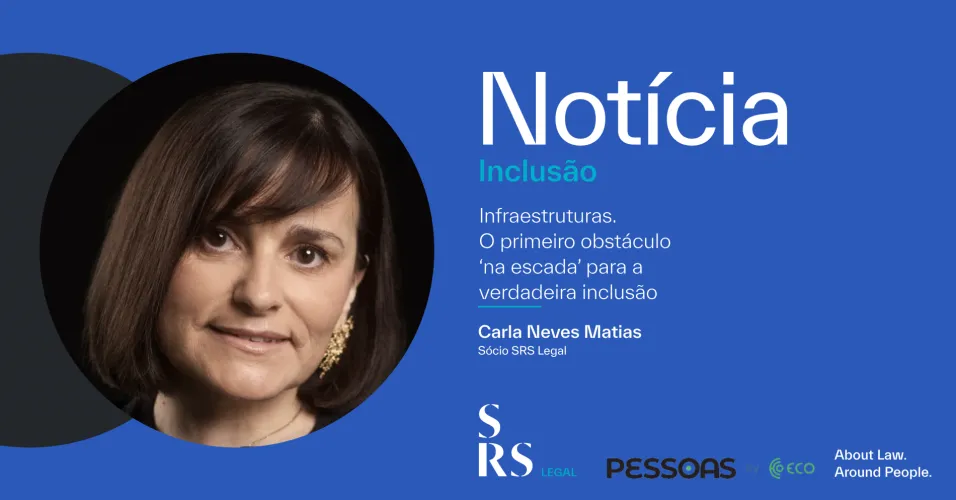Communication
Infrastructure. The first hurdle 'on the ladder' to true inclusion (with Carla Neves Matias)
«Infrastructures that, even today, are an obstacle to the inclusion of people with disabilities in the labor world. Today, February 1st, new quotas for people with disabilities in companies come into force.
A staircase almost knocked Carla Neves Matias' professional destiny to the ground: law. "That ramp that is now at the Law School was me who annoyed everyone to the point of exhaustion, because it didn't exist, either outside or inside," she says. "I know some people who didn't enroll in the course precisely because they had no way to get over the obstacles." Without a ramp, his autonomy - he uses a wheelchair to get around - was severely compromised. "In the morning, and in the afternoon when I went out, it was a horrible time. I had to choose someone to ask to help me up the steps. And, many times, I wanted to leave, because I didn't have to put myself through that," recalls the now partner at SRS Legal. As of today, February 1st, the new law on hiring quotas for people with disabilities goes into effect.
More than two decades later, in the world of work, Carla Neves Matias still encounters physical obstacles that make it impossible to access the wheelchair she uses. "I remember one time in Lagos when the first floor was vacant, but the court was on the second floor, with no elevator. I had to be carried by two court clerks, with the help of the counterpart's lawyer. This can create in me a feeling of inferiority towards my colleague, which is not good for the exercise of the profession," she says.
She complained and the answer she got, from someone at the Ministry of Justice, was: "You are not prevented from practicing your profession, as we have seen because you were able to fill out the complaint book. "The world is not very thought out... but the courts should perhaps take the first step," he stresses. "Architects should go to the Alcoitão medical center. And the legislator too. To try and understand what the reality of people with disabilities is."
Among companies, Carla Neves Matias finds, several times, the same problem. "Some claim to have all the conditions to receive [people with disabilities], and it's not true. I go to meetings and there are embarrassing moments, in buildings that are quite recent, where certain things weren't thought through: they have elevators, a wider place to pass, but, for example, the access to the office elevator has three steps," she says. To avoid embarrassment, he acts preventively. "I'm always careful to say 'I don't mind moving, if you make sure you have access for a wheelchair. Otherwise, I invite you to come to my office.'"»





